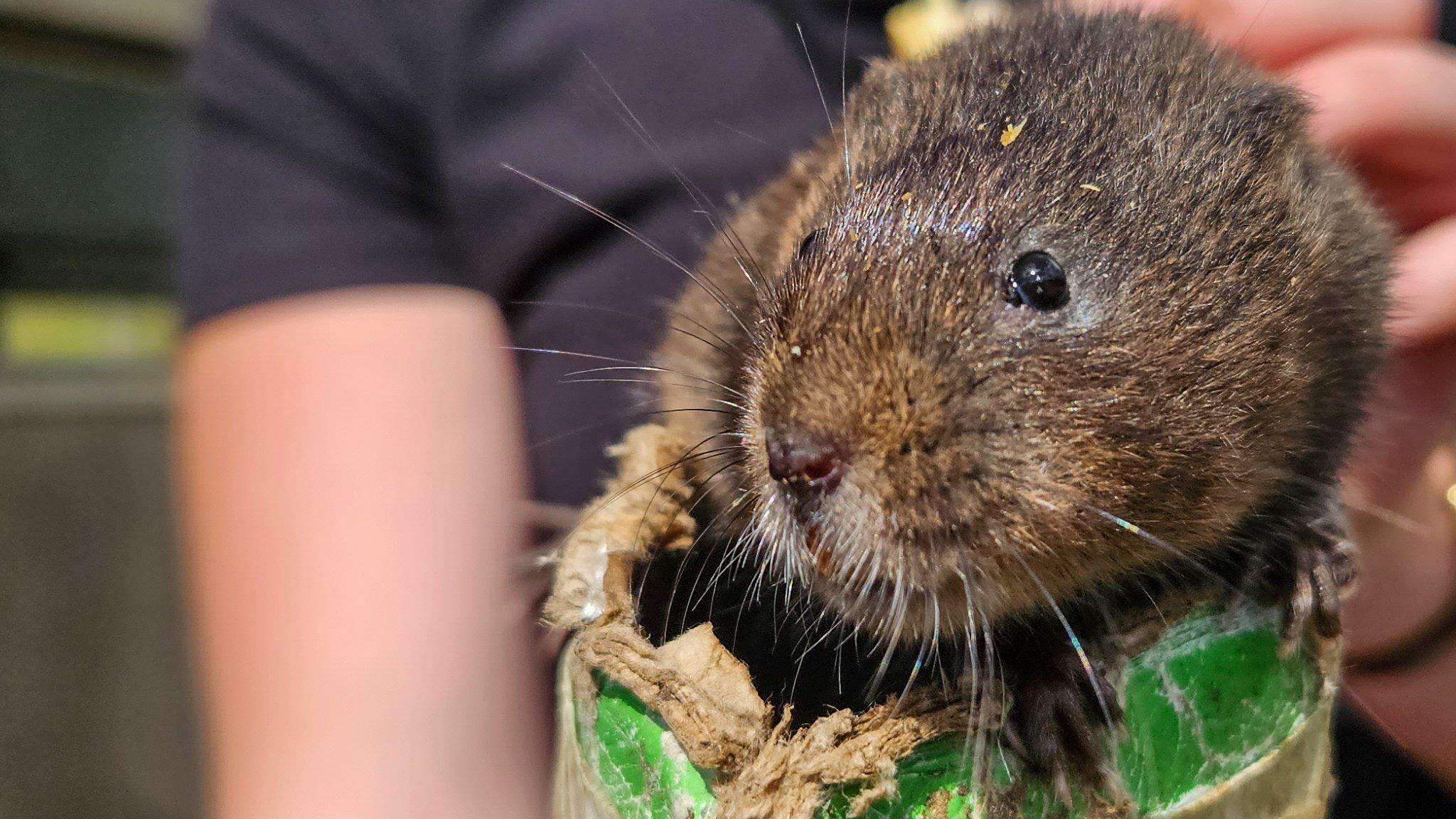UK wildlife: Endangered water voles reintroduced to Lake District
- Published
- comments

365 water vole have been reintroduced so far as part of the project
If you've never seen a water vole before, you're probably not alone as they are Britain's fastest declining mammal.
Some good news though, after nearly disappearing from the Lake District in the last century, more than 300 are being reintroduced near Haweswater in the national park.
It's part of a joint project which hopes to help the endangered animals population thrive.
A total of 365 water voles have now been reintroduced as part of the project.
Water voles are Britain's fastest declining mammal
Water voles can normally be found along our rivers and look a bit like brown rats, but with a blunt nose, small ears and a furry tail.
Over the last century their numbers have fallen from eight million to around 132,000 - disappearing from 94% of the sites they once called home.
The animals were virtually wiped out because of habitat loss, pollution and the spread of American mink, which were larger animals, first brought to Britain in the 1920s to be used to make fur for things like coats.
The People's Trust for Endangered Species says the American mink escaped from those farms and started to breed in the wild.
The project hopes to help the endangered mammal's population thrive
Before the water voles could be reintroduced, the threats that almost wiped them out had to be addressed.
The Eden Rivers Trust, Cumbria Connect and Environment Agency worked together with landowners and volunteers to find suitable sites, make improvements to habitats and find efficient ways of controlling American mink.
To make sure the release was a success the Eden Rivers Trust worked with water vole specialists to make sure the ones being reintroduced were genetically similar to the ones that once lived there.
Dave Greaves, from the Eden Rivers Trust, says "it's lovely to see them back where they should be".
- Published12 November 2021
- Published2 January 2020
- Published19 August 2016
